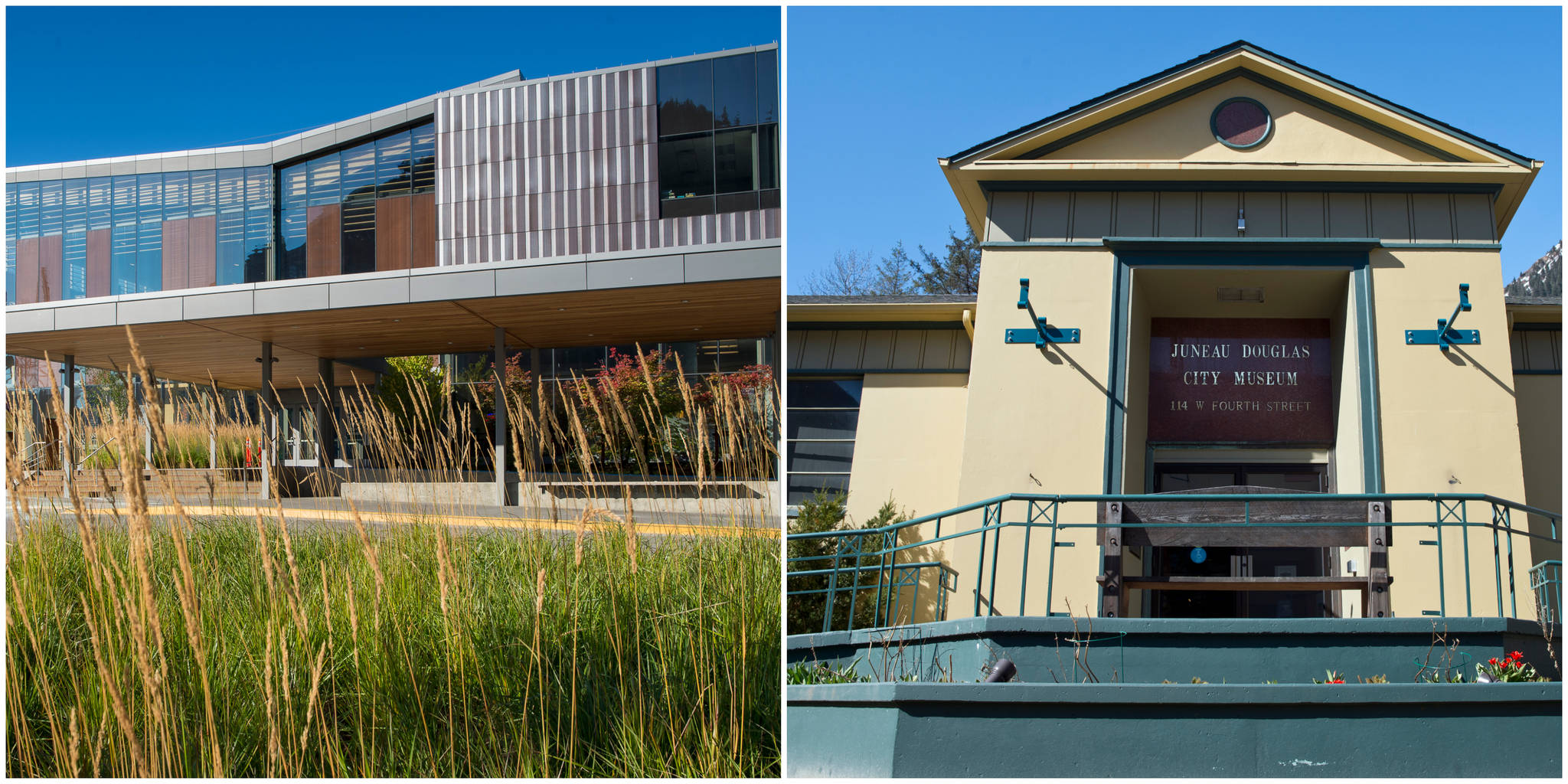With a pronounced drop in the tourist traffic that usually drives summer admissions, Juneau’s museums are finding ways to use the time — and display their exhibits virtually.
“At first, we didn’t have a ton of people coming in. Through the rest of June and first half of July, it was very minimal,” said Beth Weigel, the museum director of the Juneau-Douglas City Museum, in a phone interview. “Since mid-July we’ve started seeing more people coming in. We do see visitors who are in town, independently stopping in.”
The city museum and the Alaska State Museum have both had significantly reduced numbers during this wet, quiet summer. State museum chief curator Addison Field said that in the period since June, when the museum usually gets more than 15,000 guests, they’ve had barely 500.
“It’s absolutely lower,” Field said in a video call. “This time of year, we do expect to have high visitor numbers, but since we have less people in the galleries, there are opportunities with that.”
Both museums are shuffling exhibit schedules as the coronavirus throws off timing and acquisitions of further exhibits. The city museum will be extending its exhibit “Echoes of War: Unangax Internment during WWII,” telling the story of the internment of the people of the Pribilof Islands for a full year, and the state museum has rescheduled exhibits, hosting an exhibit on women’s suffrage in Alaska with a pair of exhibits about artists Ben Huff and Mitch Watley opening in the autumn.
“We’ll have that open till October 2021. We decided to rearrange the exhibit schedule. We feel it’s a very important story,” said Weigel, speaking of the internment of Alaska Natives at Funter Bay by the U.S. government. “It normally would have been ended at the end of this October. We’ve also applied for some funding to bring aspects of it online.”
[Troopers close Sitka cold case]
Both museums are taking the time to work on items that the summer usually leaves staff too busy to attend to, Field said. The state museum is beginning installation of a few exhibit, Field said, while the city museum is catching up on tasks that usually get shunted to the back burner, Weigel said.
“We’re trying to do the best we can. We try to see the silver linings,” Weigel said. “We do get to bring parts of the collection that the public doesn’t usually see, and we’re trying to get creative in ways we haven’t been before.”
Additionally, both are working to make content available online, so the curious can learn without being physically present.
“We’ve absolutely been pushing the development of online content,” Field said. “It’s something that ordinarily wouldn’t receive as much resources as it has.”
In addition to strict policies for guests and staff mandating low numbers, distancing, and mask and sanitizing practices, museums are looking for new ways to bring the exhibits to people at home, Weigel said.
“We’re toying around with more creative ways of creating our videos. We might get a little more elaborate there. We might try to create some virtual experiences,” Weigel said.”Maybe you could move around the museum virtually on your computer. We’re going to try to bring our store online.”
Finally, both museums are collecting artifacts and anecdotes as Alaska navigates the coronavirus and the other struggles of our time.
“One of the other things we are doing is continuing to collect. for COVID and for other things going on in the state,” Field said. “We’re a storage place for Alaska’s past, present, and future and we believe strongly in the power of history.”
• Contact reporter Michael S. Lockett at 757-621-1197 or lockett@juneauempire.com.
Know & Go
• The Juneau-Douglas City Museum has free admission until September, paid for by the Friends of the Juneau-Douglas City Museum. Hours are 10 a.m.-4 p.m., Thursday-Sunday.
• The Alaska State Museum is open noon-4 p.m., Wednesday-Saturday. This summer, general admission costs $7, senior admission costs $6, active-duty military admission is free for those with ID and admission for youths 18 and younger is free.

